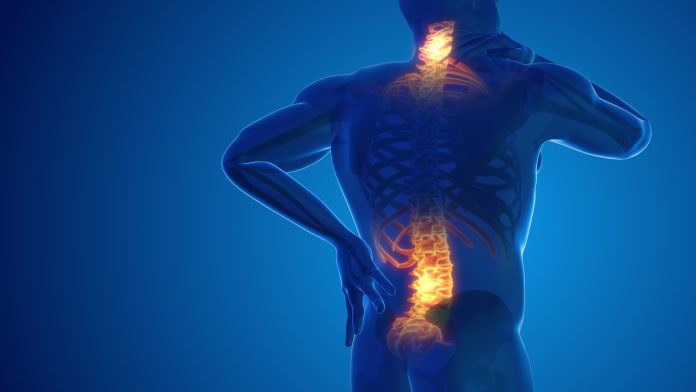Medical Cannabis for Back Pain Management
Back pain is a common issue that can begin as a mild irritation and quickly escalate into chronic discomfort. Although many conventional pharmaceutical options are available for managing back pain, the demand for alternative therapies remains strong. Opioids, often prescribed for chronic back pain, carry risks of addiction and severe side effects, leading to a growing interest in alternative treatments such as medicinal cannabis.

How Cannabis Can Help With Back Pain
The human spine is a complex structure involving intricate muscles, bones, and nerves, making pain relief difficult to achieve. With numerous potential causes of back pain, finding a one-size-fits-all solution is nearly impossible. This is where medicinal cannabis may serve as an alternative option for managing chronic, hard-to-treat back pain.
How Medical Cannabis Interacts With the Body
Humans, like all mammals, have an internal system known as the endocannabinoid system (ECS). The ECS is believed to play a critical role in maintaining balance within the body, regulating various functions such as pain perception, inflammation, mood, sleep, and appetite.
The ECS is made up of three key components:
-
Endocannabinoids: Naturally occurring signalling molecules produced by the body
-
Receptors: CB1 and CB2 receptors that allow cannabinoids to bind and trigger various effects
-
Metabolic enzymes: Responsible for breaking down both endocannabinoids and phytocannabinoids (cannabinoids found in plants, such as cannabis)
The cannabinoids found in cannabis, particularly THC and CBD, are classified as phytocannabinoids. These compounds interact with the ECS to produce therapeutic effects, including pain relief and anti-inflammatory properties.
-
THC: This is the primary intoxicating component of cannabis, known for producing the “high” associated with recreational use. It has a structure similar to the endocannabinoid anandamide, allowing it to bind to CB1 receptors and offer potential therapeutic benefits, including pain relief.
-
CBD: Non-intoxicating, CBD interacts more mildly with CB1 and CB2 receptors and has been shown to modulate the effects of THC. CBD also inhibits the breakdown of cannabinoids, potentially prolonging the therapeutic effects of the body’s own endocannabinoids.
Both THC and CBD have shown potential in pain management, offering anti-inflammatory and muscle-relaxing benefits.
Research Findings on Medicinal Cannabis and Back Pain
Although research into medicinal cannabis remains in its early stages due to long-standing legal restrictions, recent studies have yielded promising results for its use in managing chronic pain, including back pain.
-
Systematic Review: A review titled “The Efficacy of Cannabis in Reducing Back Pain” analysed four studies and found that cannabis offered significant pain relief with a tolerable side effect profile for back pain sufferers.
-
Chronic Pain Study: Another study, “Medical Cannabis for Chronic Nonmalignant Pain Management,” revealed that patients reported relief from pain using cannabis, with fewer adverse effects compared to opioids. This study also suggested that cannabis could reduce opioid dependency.
-
Anti-inflammatory Effects: Research into CBD’s pharmacological effects highlights its anti-inflammatory properties, which could make it effective for managing conditions like back pain, where inflammation is a primary contributor to discomfort.
While more research is needed, the existing studies point towards medicinal cannabis being a viable option for chronic back pain management.
Conclusion
Managing chronic back pain can be a challenging and complex process. While the research on medicinal cannabis for back pain is still evolving, early studies suggest that it has the potential to offer both anti-inflammatory and pain-relieving benefits.
However, it’s essential to recognise that cannabis is not a standalone solution and should be incorporated as part of a comprehensive treatment plan. If you’re interested in exploring whether medicinal cannabis might be right for you, please complete the online assessment form.
In summary, while cannabis is not a cure-all, it has demonstrated potential for helping manage chronic back pain, providing an alternative to traditional pharmaceutical treatments.
[DISPLAY_ULTIMATE_SOCIAL_ICONS]
